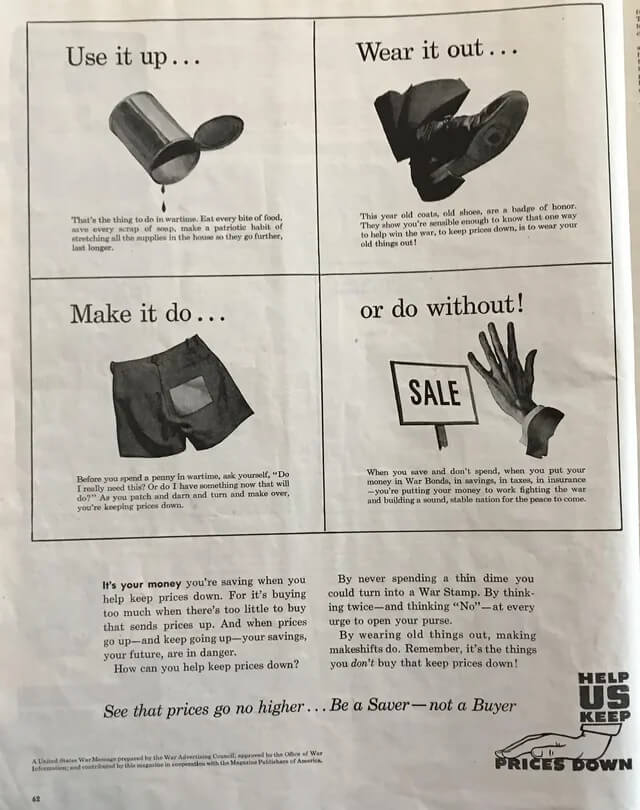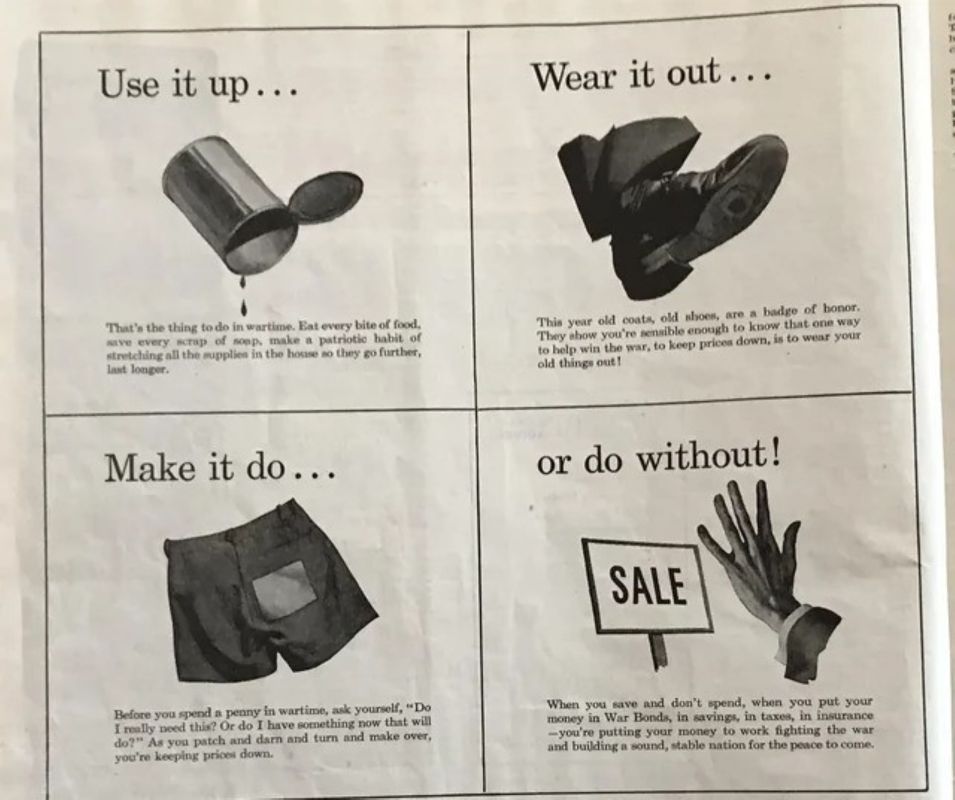A 1944 advertisement from the U.S. War Advertising Council is causing a group of Redditors to reflect on what it means to be a consumer in modern society.
A photo of the advertisement shared with the r/Anticonsumption forum details the patriotic implications of reducing, reusing, and recycling goods during wartime.
The text details, "Use it up … wear it out … make do … or do without," with graphics of an empty can, worn-out shoe, and patched pants. Under the pants quadrant, the ad reads, "Before you spend a penny during wartime, ask yourself 'Do I really need this? Or do I have something now that will do? As you patch and darn and turn and make over, you're keeping prices down."

During World War II, the movement to reduce consumption was meant to help keep the cost of goods, like clothing, food, and dry goods, low for the military to purchase and utilize. Many of these goods were sent to the Allies under the Lend-Lease Act, signed by President Roosevelt, which equipped countries like Britain, to fight the Nazis.
The government-coerced thriftiness of the 1940s successfully kept the price of goods low for both the military and American consumers. But this frugal mindset was short-lived, as companies started manufacturing cost-accessible vehicles, home appliances, and technology. In the four years after the war, spending on furniture and appliances increased by 240%.
Users in the comment section indicated how Americans' thriftiness during wartime starkly contrasts the mentality of modern consumers. "Heh, now it's the opposite, like you're being unpatriotic if you save." one user wrote.
Other users note that greater forces are afoot in the fight against consumerism. "Ah, the good ole days when they made appliances that lasted 20-plus years … " a commenter shared. Several other Redditors jumped on this theory, suggesting that because things are made so cheaply, they are not made to be fixed — just trashed.
Some Redditors joked about the proliferation of spending culture, which has created unprecedented levels of waste, a flurry of constant advertisements, and the exploitation of dirty energy resources. Others noted the potential of state-sponsored efforts to curb spending to fight more significant environmental issues.
"We'd need a war-like economy (or rather mindset) to have a chance against climate change," one user commented.
Join our free newsletter for cool news and actionable info that makes it easy to help yourself while helping the planet.









